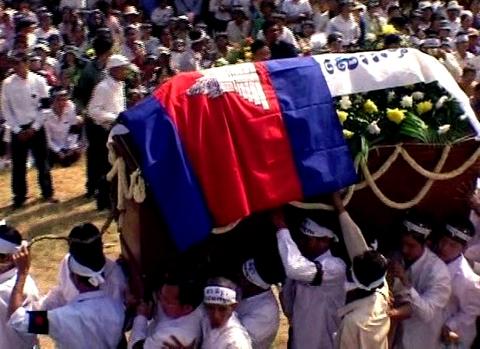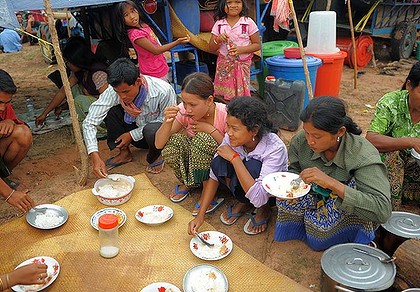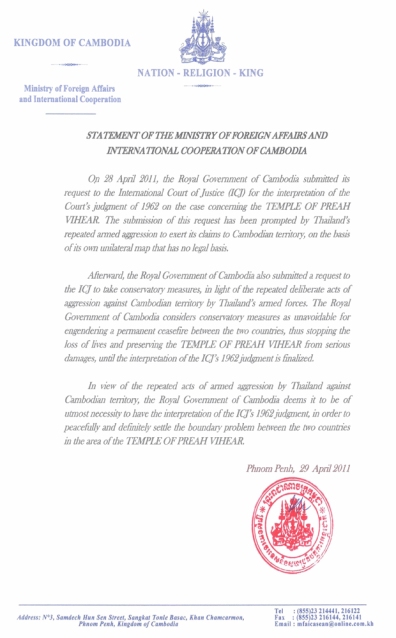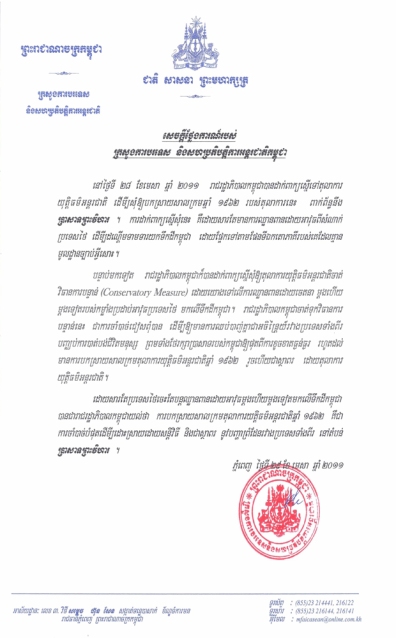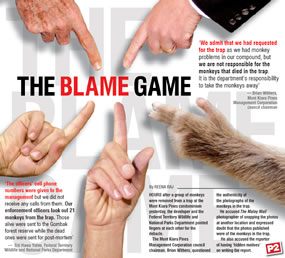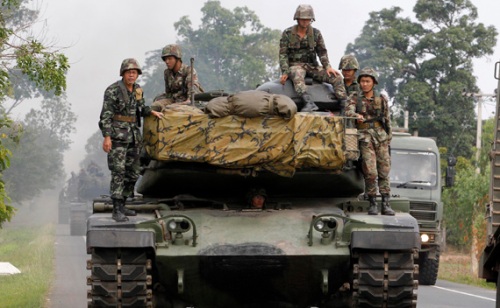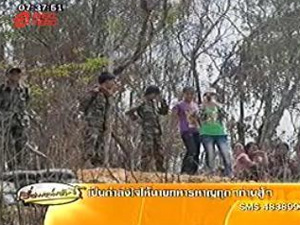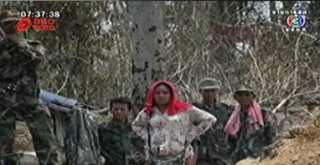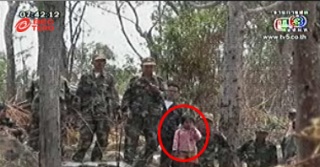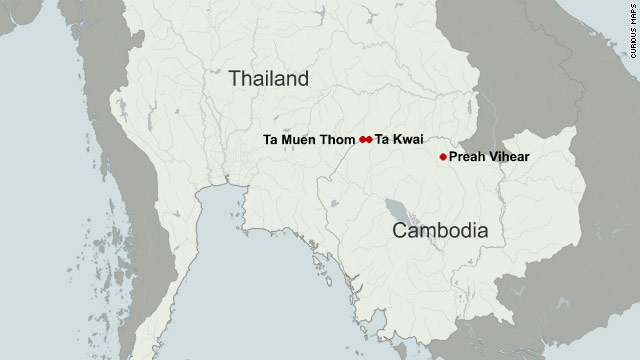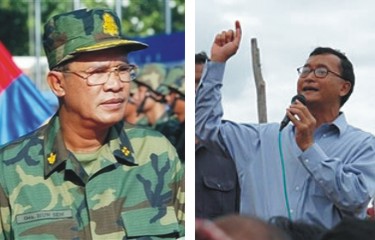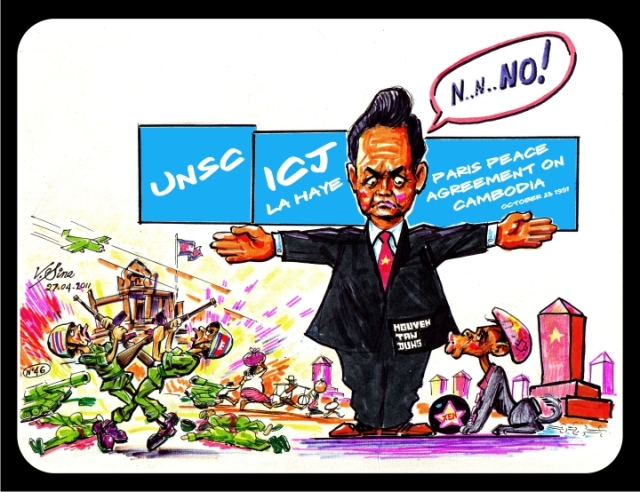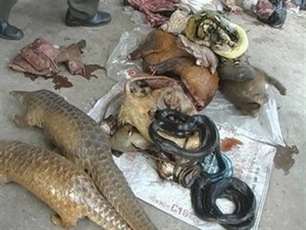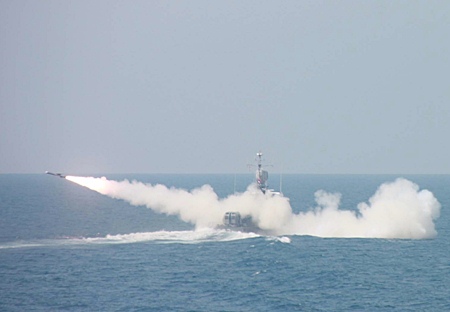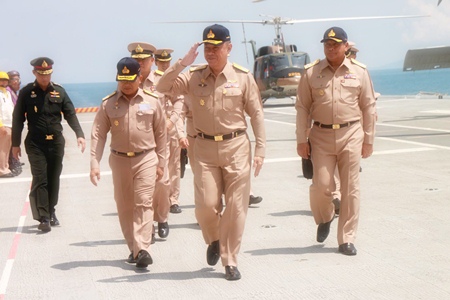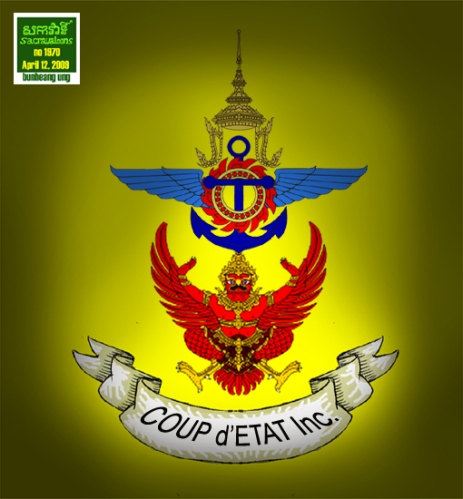Thai and Cambodian commanders have reached a new ceasefire agreement, just hours after an earlier truce was shattered.
After clashes erupted on the disputed jungle border for an eighth day, commanders from both sides agreed on a new truce.
Thailand and Cambodia have accused each other of breaking Thursday’s ceasefire, aimed at stopping clashes around two ancient temple complexes, which claimed 16 lives and caused tens of thousands to flee their homes, on both sides of the border.
Presenter: Sen Lam
Speaker: Jean-Pascal Moret, spokesman, International Committee of the Red Cross, Bangkok
Click here to listen to the audio program (Windows Media)
MORET: The latest estimated figures we have, together with the Thai Red Cross, it’s 42-thousand people on the Thai side, and 36-thousand on Cambodia’s side, which is almost 80-thousand civilians directly affected by the conflict, displaced in camps.
LAM: And do you think people might start returning their homes soon?
MORET: You know, the population there, there are abit cautious because it’s not the first time that clashes have broken out in this region, so I guess they will wait a few days before going back, and I am almost sure that the authorities would not let them go, before the ceasefire is really enforced.
LAM: And what is the Red Cross doing for the people who are displaced and who are living in evacuation centres at the moment?
MORET: Ja, actually, there are on the Thai side, 28 camps, eight more are being prepared, we don’t know now, if they’re still going on with the eight more camps. We can see that on the Thai side at least, the camps are very well prepared. They have contingency plans to deal with each kind of situation. The local authorities and the national societies are present on both sides. Also on the Cambodian side, they provided very quickly, the emergency assistance needed, such as shelter, food and non food items, water, medical services and so on. The Thai Red Cross society, for example, they had mobile kitchens providing fresh meals to those people. They are in schools, they are in pagodas, so they are, in structures, they have shelter. The main problem we should say, is the psychological problem, because they have to leave their house, they fear their homes might be looted, they are scared about what might happen to their cattle, or to their field. So, it’s more a psychological problem. Much of the situation is more less under control, I would say.
LAM: And what about the situation on the Cambodian side of the border. Do you have any news about how those displaced people are doing?
MORET: Yes, of course. We have a team also on the other side. By the way, the ICRC is probably the only international organisation present in both countries, on both sides of the border. So we can have a global picture of the situation. So on the other side, it’s more or less the same. I mean, they have also these evacuation centres where people are housed in schools and pagodas and these facilities. And the Cambodian Red Cross society is also helping the authorities to provide what the people may need during this difficult time. Whatever happens, we will be present in both countries. We are just assessing the situation. Both national societies are really handling the situation very properly. They have the resources to do that, so the ICRC is just complimenting the help the people may need, like mosquito nets, plastic sheetings or jerrycans for water.
The ICRC has a very specific role in case of international conflict. We are supporting the national societies, to visit also the prisoners of war, in case there are…
LAM: And as far as you know, has anyone been held prisoner by either side?
MORET: Non, non, we have absolutely no such thing. Nothing could give us the idea that there are prisoners of war on both sides, there are no prisoners. Also, the ICRC has met with all local and national authorities in the capital and on the spot, with the military people on both sides, reminding them of their obligations under the Geneva Convention. And also to remind them, what the ICRC can offer, for example, to act as a neutral intermediary, to help solving any humanitarian issues, if they need the ICRC A neutral intermediary.

